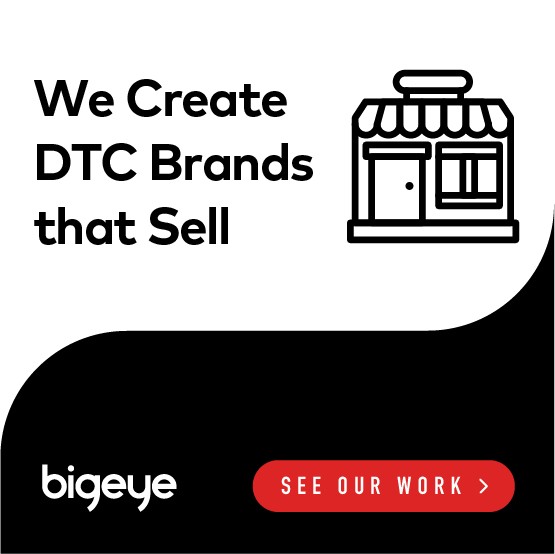
As a content marketing agency or business, don’t overlook the power of podcast marketing to meaningfully connect with your market.
As a business or content marketing agency, have you overlooked the potential of podcast marketing? Even though this might first appear like a niche tactic, you should know this audio-only kind of content has blossomed into the mainstream. Take a moment to learn more about the popularity of this media and how to start podcasting to connect yourself and your brand with an audience.
Why no content marketing agency should overlook the power of podcasts
According to Convince and Convert research, plenty of podcasts have connected and engaged with audiences. For instance:
- About 70 percent of Americans have heard of various podcasts and over half half Americans over 12 have listened to at least one. Typically, when at least half of the population has done something, it’s fair to consider it part of mainstream activity.
- In addition, almost one-third of people listen to at least one podcast regularly. This figure represents an increase from just about one-quarter of over-12 Americans from the previous year.
- To put these percentages in context, about 90 million Americans listen to at least one podcast every month, and 61 million listen each week.
One good thing about podcasts is that they appear to appeal to various age groups, so almost any content marketing agency should be able to find their niche audience for podcast advertising. For instance, you can find more podcast fans under 55, but the numbers are about the same if you’re talking about listeners in their 50s, 30s, or teens.
A few years ago, most people listened to podcasts on their computers but now tend to favor mobile devices that let them enjoy this content on the go. Also, as with radio, people tend to listen to podcasts while they’re attending to another task, such as driving, walking, doing chores, and finishing homework. That fact that busy people can listen to their favorite podcasts while cooking or commuting may also help account for their rise in popularity.
How to start a podcast that connects with your audience
Naturally, some podcast producers enjoy more attention than others. While a podcast can give you a chance to engage with a lot of people, you will always face competition for attention. As a provider of a podcast platform and training, NPR offered some valuable insights to help develop a quick connection with an audience:
Get off to a strong start
According to NPR’s own data, typical podcasts lose up to 35 percent of their audience within five minutes. After that, the dropout rate declines. They say that even mediocre episodes with strong introductions will perform better than great episodes with poor introductions.
Some tips to help engage with audiences right away can include:
- Ask thought-provoking questions: Get listeners to think about their own reactions to questions. Promise more information that may either solidify or change their views.
- Jump right into the narrative of a story: Help the audience imagine they can see, hear, feel, or even taste a situation. A few minutes later, you can catch them up with a little background. By that time, you should already have them hooked.
- Present listeners with a mystery: Offer listeners a mystery or problem that might intrigue or even plague them. Promise an in-depth analysis to help find solutions.
- Establish a personal angle: Tell the audience why the story is personally important to you. In this case, you may start with more exposition than narrative, but you can use your experiences to help develop a connection quickly.
Re-engage listeners every few minutes
Your strong introduction will help you keep keep listeners engaged. At the same time, you risk losing some of your audience as you move past the intro and into the meat of the topic. Worst of all, you might feel like you’re speaking into a void, so it’s also important to keep engaging your audience to remind yourself that you have one.
For instance, you might invite listeners to send feedback through social media or even contact tools that your platform provides. If possible, you can comment upon some of that feedback during your podcast. Letting the bulk of your audience know that other audience members are also engaged enough to leave feedback also helps maintain interest. Mentioning people who leave feedback and thanking them for their contribution will let them know they’re valued.
Develop good descriptions and artwork
For most podcasts, you will have a chance to include thumbnail artwork and text descriptions that potential listeners can view. Basically, these work like the headlines of news stories that will entice people to give your podcast a try. Try to craft these to specifically reflect both the spirit and content of your episode. The best examples evoke a reaction that will convert your potential listener into an audience member and hopefully, a fan of your brand.
Can podcast advertising help your business?
As with any kind of content, you should define your target market, set marketing goals, and of course include a marketing message and clear call to action. Once you understand what you hope to achieve, you can develop the sorts of content that should appeal to potential customers. You might directly advertise or simply use the podcast as a way to encourage more people to opt into your social media or subscriber list. You can also find podcast platforms that include analytics to help you see how well you’re retaining listeners and of course, eventually converting some to leads and customers.
Successful marketing podcasts tend to focus upon some educational aspect that relates to the business. For instance, Ken Greene represents a financial firm, and his podcasts help his audience learn about such important personal finance topics as investing and saving money or improving credit scores. A pet food company might attract an audience by inviting vets, trainers, and other professionals to a podcast that covers various pet care topics. Just about any sort of business can leverage a podcast to help gain recognition and build credibility.



